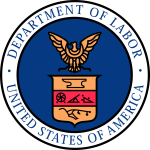A federal district court judge issued an order Tuesday temporarily stopping new rules on overtime pay from taking effect.
Beginning Dec. 1, employers would have had to pay overtime to an estimated 4 million salaried workers earning less than $913 a week. The U.S. Labor Department last spring raised the salary threshold for classifying workers as exempt from $23,660 to $47,476 annually. With some exceptions, workers paid less than the new annual minimum would be due overtime for hours in excess of 40.
Business groups and 21 states sued the Labor Department arguing that the government exceeded its authority in making such a large jump in the salary limit.
Judge Amos Mazzant, presiding in the Eastern District of Texas, agreed with that position in issuing the preliminary injunction. In one part of his 20-page ruling, Mazzant noted that the Fair Labor Standards Act, which guides pay and hours, includes a duties test for determining what workers are exempt from overtime. The FLSA exempts workers who perform administrative, executive or professional duties. The Labor Department’s rule, said the judge, “creates essentially a de facto salary-only test.”
He also raised the possibility that only Congress, not the administration, has the authority to raise the salary mi nimums.
nimums.
Technically, the injunction is not a ruling on the merits of the case. That will come later. But the judge’s strong language implies he will rule against the Labor Department.
“The court’s decision suggests that the Department of Labor has no authority whatsoever to regulate a salary minimum,” Allan S. Bloom, an employment attorney with Proskauer Rose, said, quoted in The New York Times.
While business groups, including the U.S. Chamber of Commerce, pushed hard against the overtime rule, many companies, particularly in the retail sector, raised the pay of currently exempt workers above the limit in order to avoid paying overtime. Now they’re faced with deciding to leave them in place or risk creating serious morale issues by rolling them back.
Another complication is the political consequences if the new Trump administration does nothing. The Labor Department issued a statement saying it disagreed with the court ruling and was weighing its options. One of them could be to appeal the injunction. However, the incoming administration could withdrew the appeal.
It is possible the new administration and the incoming Congress could reach a deal raising the $23,660 threshold, which has been in place since 2004.
A spokesman for the National Retail Federation said, his group and others, would support such a move. “We’re 12 years past the last update.”